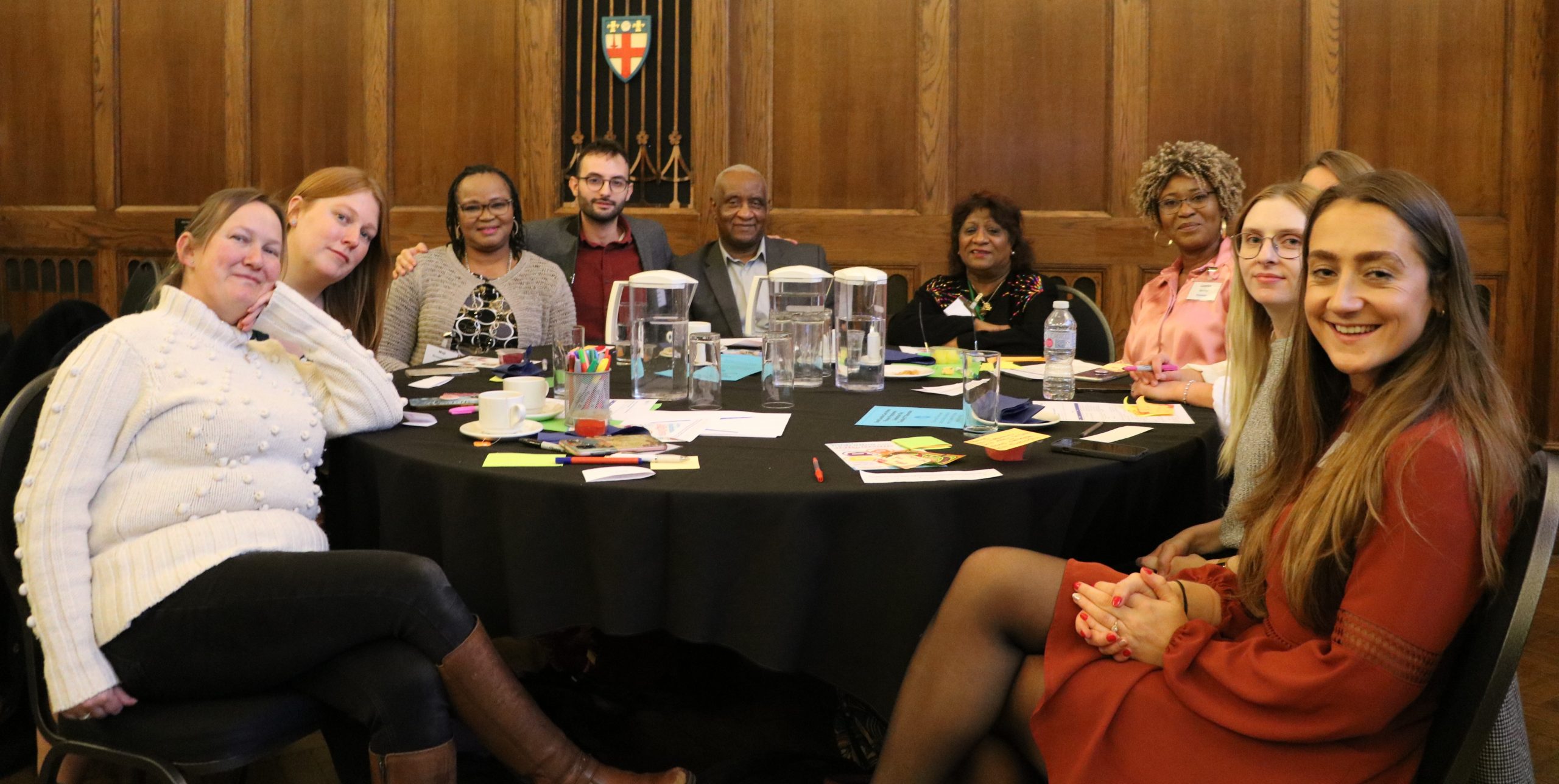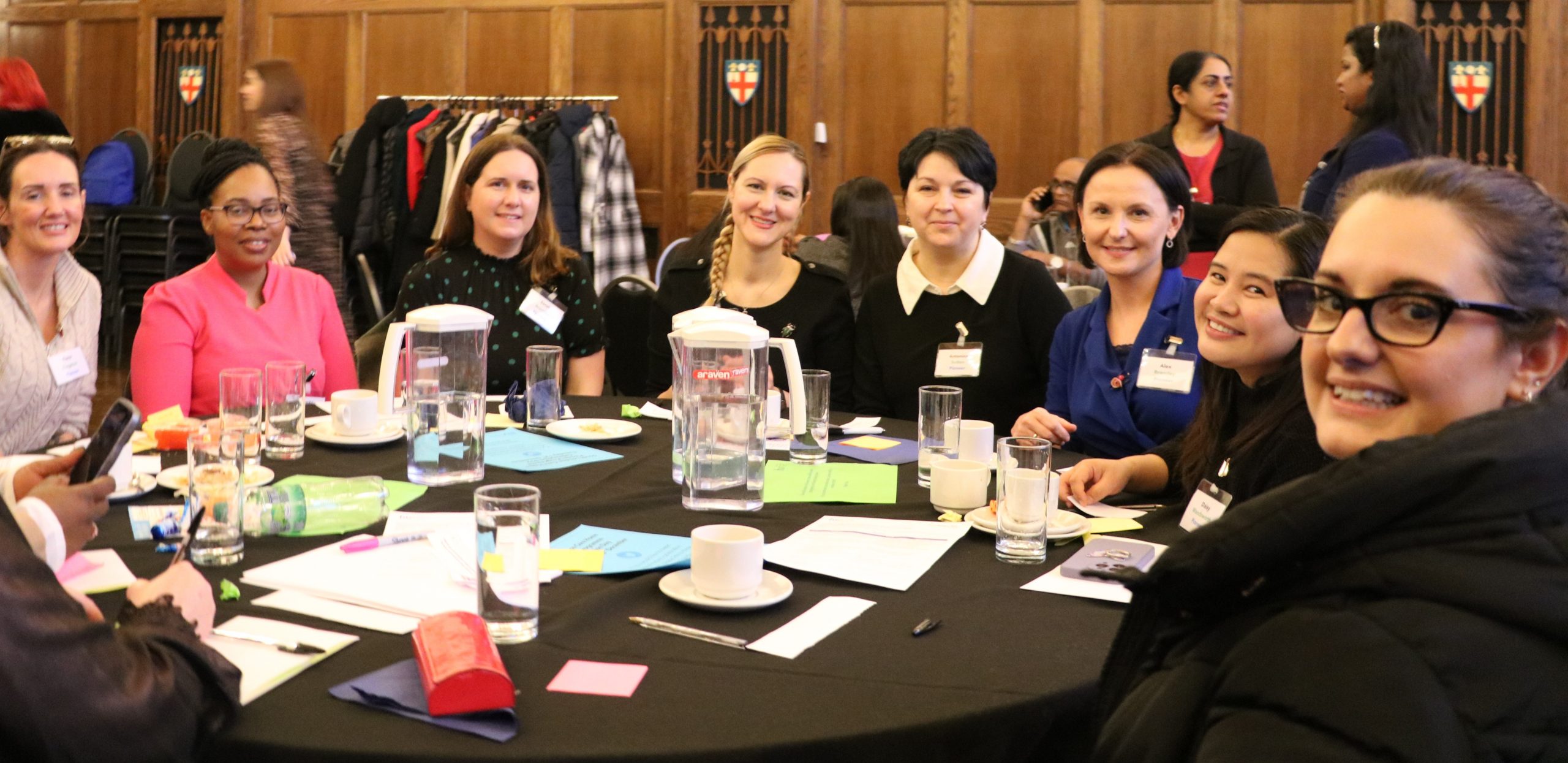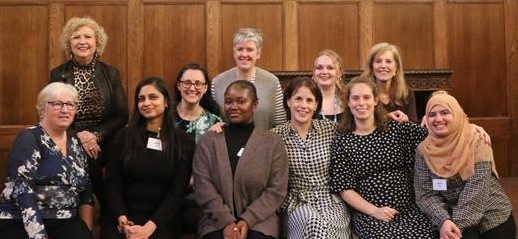In December 2023, the South London Care Home Pioneer Programme reached its conclusion with a joyful Celebration Day held at Governor’s Hall at St Thomas’ Hospital. This marked the end of a 9-month period of support for the Pioneers, who are care home leaders drawn from all types of care homes in south London.
The Pioneer programme is run by the Health Innovation Network South London (HIN) and My Home Life England. It leads Pioneers on a journey of personal and professional growth through face-to-face workshops, action learning sets, mentor support and service improvement projects, to enable them to make lasting improvements in care homes across South London. Now running for five years, the Programme has supported more than 120 Pioneers across all 12 south London boroughs.
The Celebration event gave the Pioneers the opportunity to feed back their experience of the programme to funders, and other invited guests. Their heartfelt testimonials described the impact the programme has had on their professional growth, working lives and wellbeing.

“The programme has boosted my self-belief. I am so grateful to have been offered the opportunity, and the impact it will have for me and the home. It really made me feel valued.”Care Home Pioneer 2023
“Attending the programme is possibly the best thing I have ever done! It has built my confidence so much.”Care Home Pioneer 2023
“Being part of the programme has made me feel accepted, bold and seen.”Care Home Pioneer 2023
Pioneers emphasised the applicability of the programme in their day-to-day roles. They also spoke of achieving newfound confidence, making improvements in care via their service improvement projects, and gaining a deeper understanding of leadership dynamics.
Posters describing over 30 service improvement projects were unveiled at the event. These projects demonstrated the commitment and creativity of the Pioneers and showcased the positive impact of the projects on the lives of care home residents and staff.
For example:
- Education sessions were introduced to help improve knowledge about good nutrition and hydration for people with learning disabilities and autism living in supported living settings
- Improvements were made in documentation for residents nearing the end of their lives, enabling staff to provide the best possible care
- Additional activities were introduced to improve the quality of life for residents
- Electronic record keeping systems were introduced
- Improvements were made to staff supervision meetings to build confidence and provide additional support
Please find the posters and booklet here.
Representatives from organisations who had funded the programme were also present. Their commitment to positive change in the care home sector was palpable, as they engaged with both Pioneers and alumni, demonstrating a shared commitment to enhancing the quality of care for residents.

“I’m in the really lucky position of visiting the older people care homes in our borough, to see first-hand the impact the course has on those attending, and also the effect of sharing these ideas with other staff, as well as often delivering better communication between the home and relatives and improving outcomes for residents. It is one of the best aspects of my job. A real joy.”A local authority Quality monitoring officer
“Listening to the other graduates and alumni, I was inspired by the benefits they described from attending the course and being part of the network and impressed by the ideas they had for improving the experience of residents and staff. Indeed, I have acted on the idea from one of [the] alumni.”A local authority Director of Commissioning
Pioneer Alumni, who completed the programme in 2022, spoke about the way they had been supported to develop further via the new Pioneer Alumni programme, and encouraged the 2023 Pioneers to join their Network, describing the value of being able to continue to have a space for peer support and discuss challenges in social care.
December’s Celebration event marked the end of the nine-month journey for the 2023 cohort. We feel confident that the programme has equipped our Pioneers to better manage the challenges in social care.
We've made a short video summarising the day. Watch it below.

We're here to help
To learn more about the South London Care Home Pioneer Programme, and enquire about the 2024 Programme, please contact us.
Get in touch